With so much conflict in the world, it is important to talk to your children about war and explain things to them in an age-appropriate way. This is especially important when they reach school age as they will hear about it in the playground and it is so much better if you become their trusted source of information. That way you can control what they hear and how they process it. When it comes to older children you will find that they consume so much news and information via social media such as TikTok.
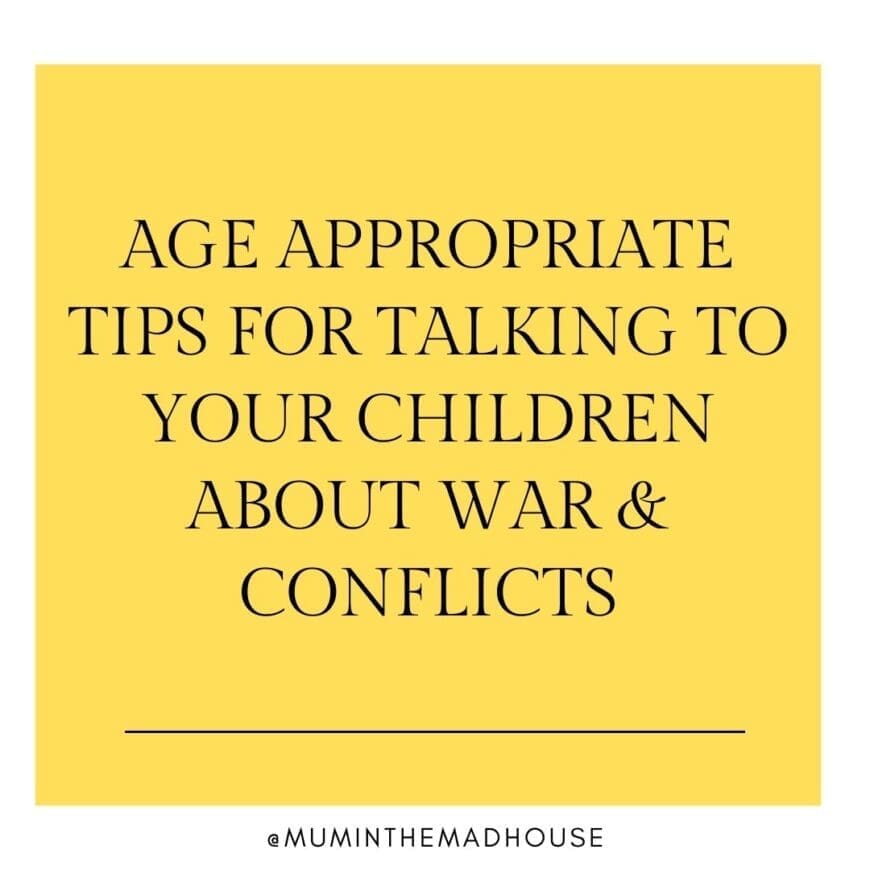
My children are now teenagers and I find it easy to have an honest conversation with them about war and conflict. We actually have in-depth conversations about world events and difficult topics and I am very aware of the anxiety and emotions that come from the events in the world.
Currently, over 7.5 million children in Ukraine are caught in the war with Russia and this information is not something we can hide from our children, however, we can as parents protect them from sources of information that isn’t appropriate and there are actions we can take to reduce the trauma on our kids. It is down to us to protect our children from the news of the war. So where do you start talking to children about war and conflict?
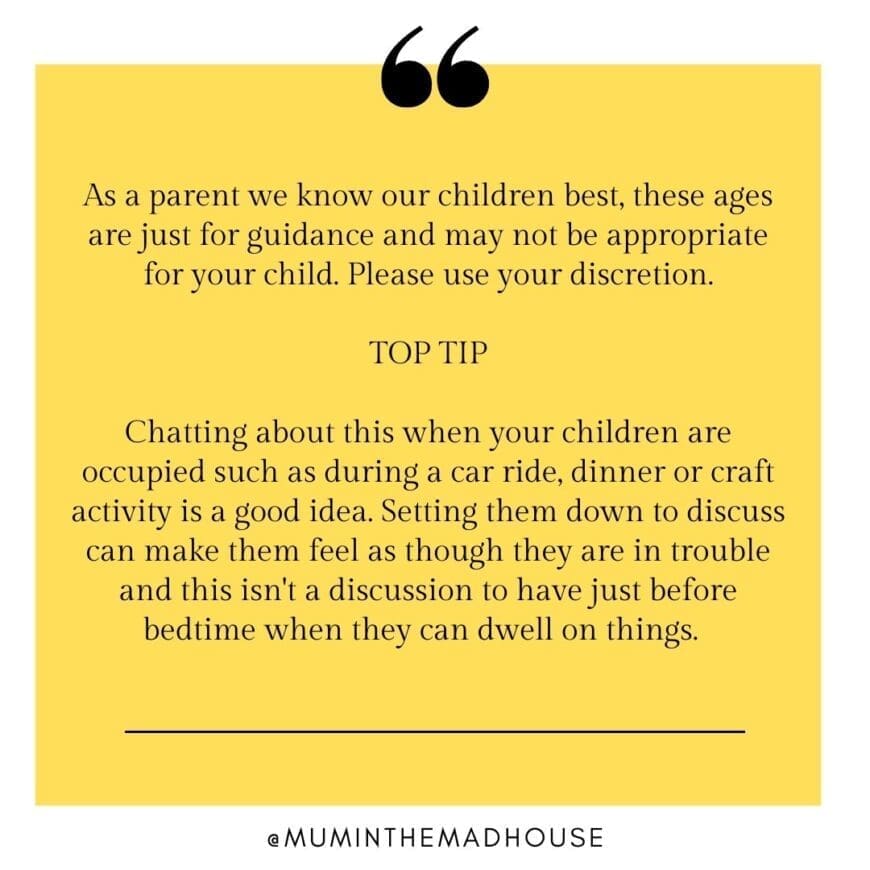
I have used a child’s age as a guide but we know our own children best so tailor this information to your child or young person.
Talking to Children about Conflict and War
Children Under 8
It is key to understand that young children under 8 years old are not equipped to make sense of concepts such as war and death. Their brains are developing and they may get confused with reality and fantasy (which is why role play is so key for them) and the lines between may get blurred. In fact children, at this age may have more of a reaction to their parent’s distress over the war than their own. Personally, I wouldn’t talk about it with a preschool child unless they ask.
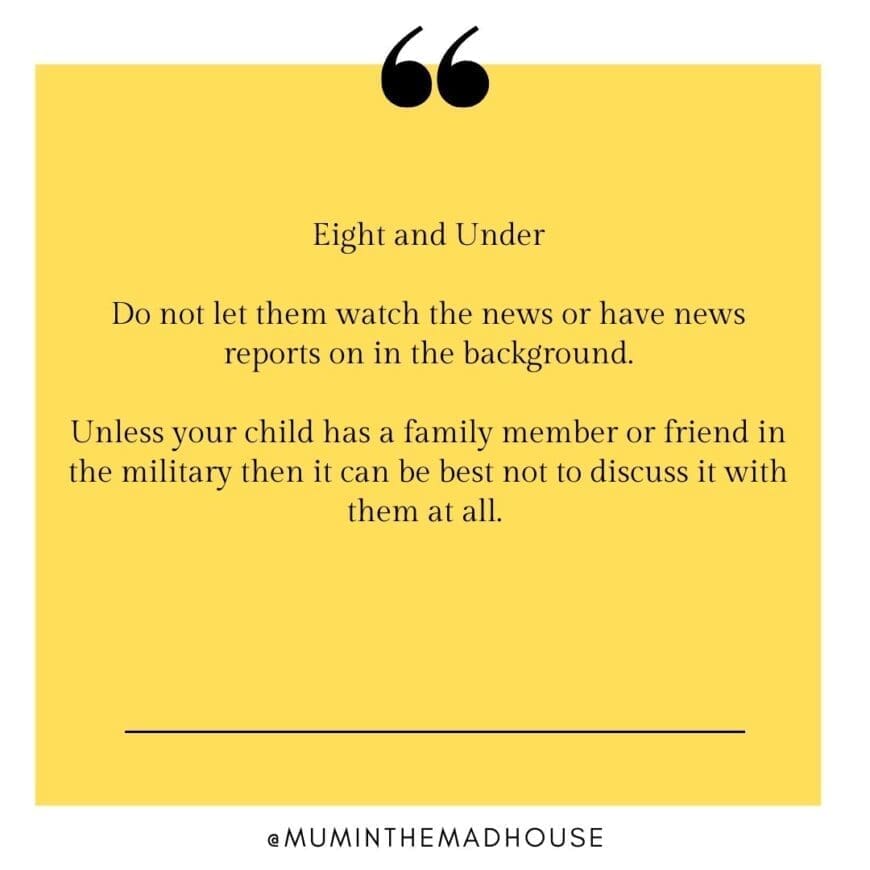
It is important to limit their exposure to the news and conversations about the war. So do not have the news on in the background or discuss it in front of them. As an adult, I find the news distressing, so I can only imagine just how hard it is for them. The advice from Parenting expert Dr. Deborah Gilboa is unless the child has a family member in the military to only give factual information with personal insight keeping it clear and concise, information to answering – such as
“There is a war in a country called Ukraine, which is a long way away. We are safe”
Leave it at that unless they as a follow up question and then simply try and reinforce your values.
So if a child asks, “Why are they fighting?” you can say, “They’re fighting over who should be in charge but it is far away from here.”
Don’t be vague, tell the truth using real words but we don’t want to flood our kids with fear.
Children Over 8
A great way to start a conversation with older children is to ask if they have heard anything about the war.
“Have you heard about the war in Ukraine and what have you heard?”
This way you get an understanding of what they know, where they got the information and get a handle on their emotional state. You can correct any misunderstandings and talk about what war means and support children with their mental health and any anxiety they might have about current events.
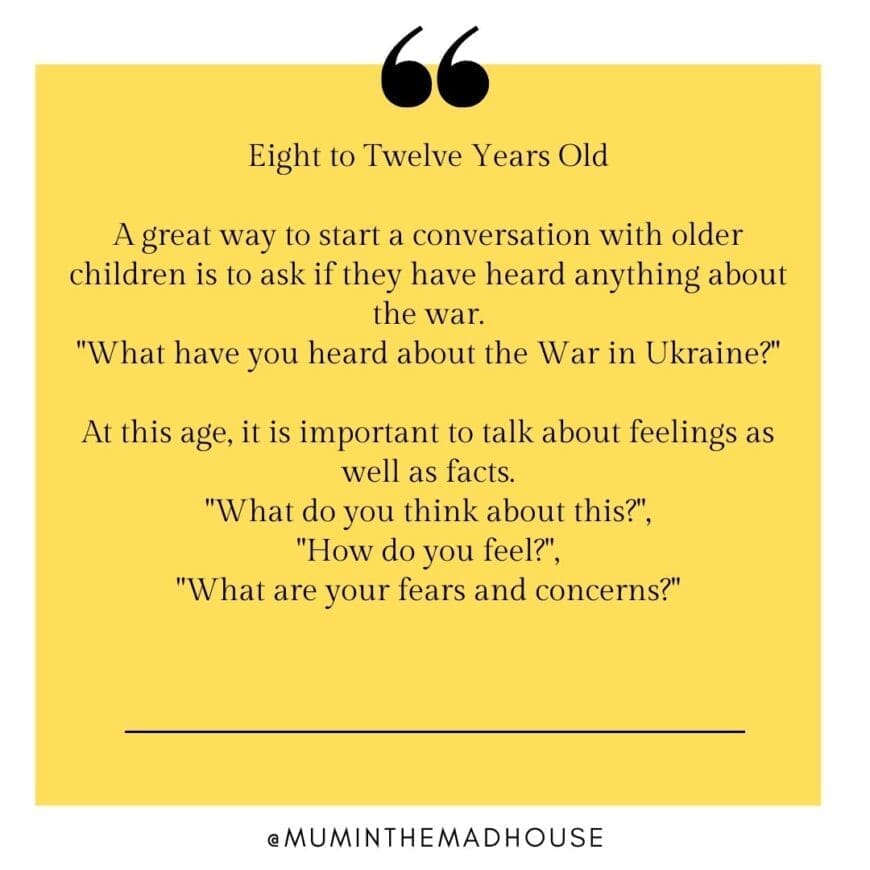
Try and limit the information you give to one fact at a time and one value you want to reinforce, do not bombard them with information no matter how curious they are. Often if they ask you a question, they will have already considered the answer themselves, so I try to turn the question back to them using open-ended questions.
“What do you think about this?”, “How do you feel?”, “What are your fears and concerns?”
Don’t just stick to the facts, it is good to talk about feelings and check in on theirs. If your child remains silent, just reaffirm with them
“This is hard to deal with, I feel sad about it too and am right here with you”
Teenagers
As I have learned Teens are very media savvy and get their information from a lot more sources than younger children including TokTok and Youtube. Both of my boys are pretty switched on about the Russian invasion of Ukraine and why it is happening and my job is to ensure that they understand can differentiate between fake news and find trusted sources of information. They have lived through terrible terrorism and other conflicts, but as this is in Europe it seems so much closer and some of the things they see on social media are really disturbing.
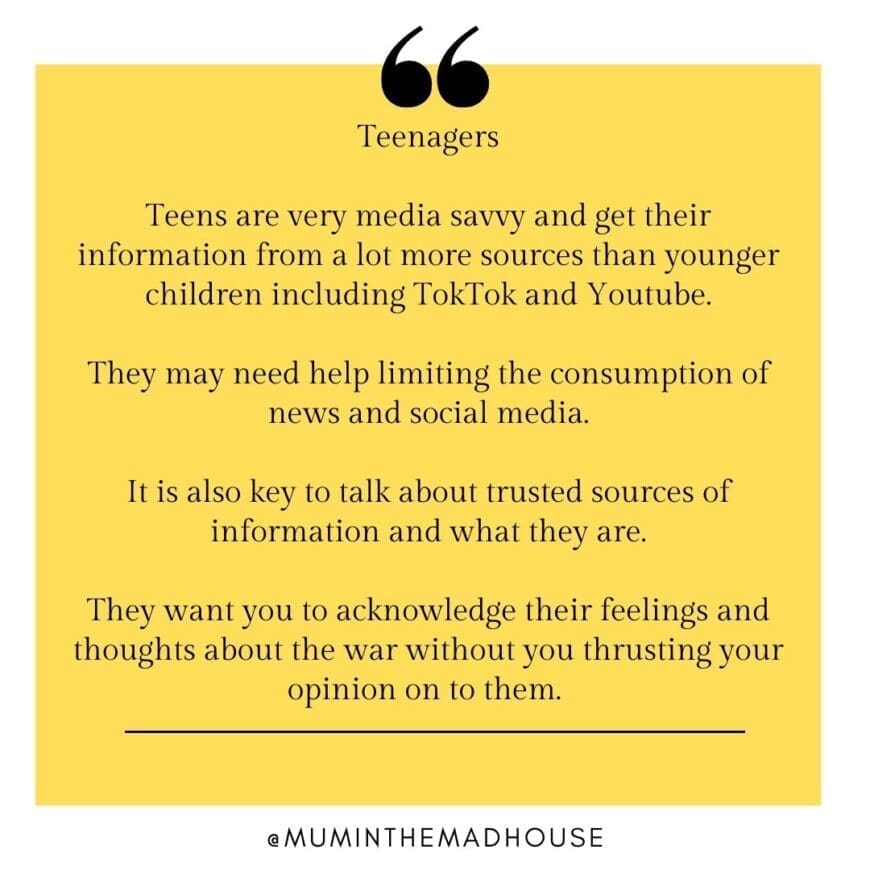
I am always honest with my children and if that means explaining that I do not know or have all the answers and I reassure them that I am here to listen and learn with them. By limiting media exposure you can control the amount of information you are bombarded with.
Be part of the Solution
One of the ways that help my children feel better and more positive is to take practical action and be part of the solution. This could be joining a fundraiser or donating to charity or writing to our MP (how to contact your MP).
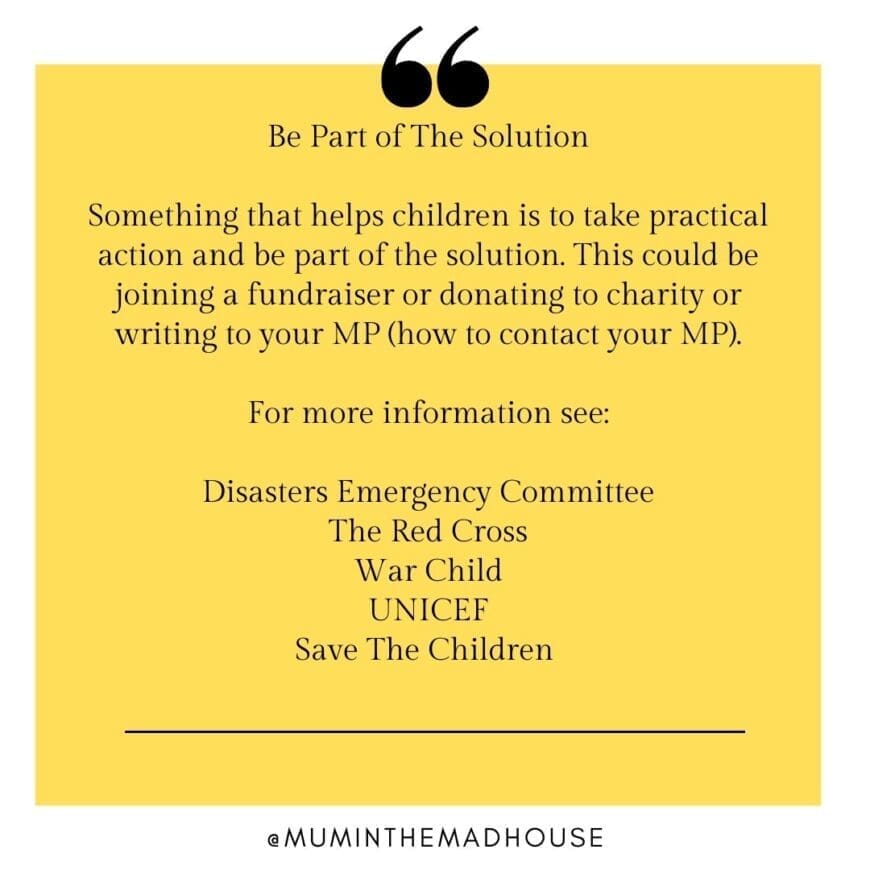
Following information on our local Facebook group, we gathered supplies that were requested for refugees and dropped them at a local collection point.
Child-Friendly News Sources
- BBC Newsround
- The Week Junior (get six issues free)
- First News (get six issues free)
- The Day
- The Economist Topical Talk
- Twinkle News Room
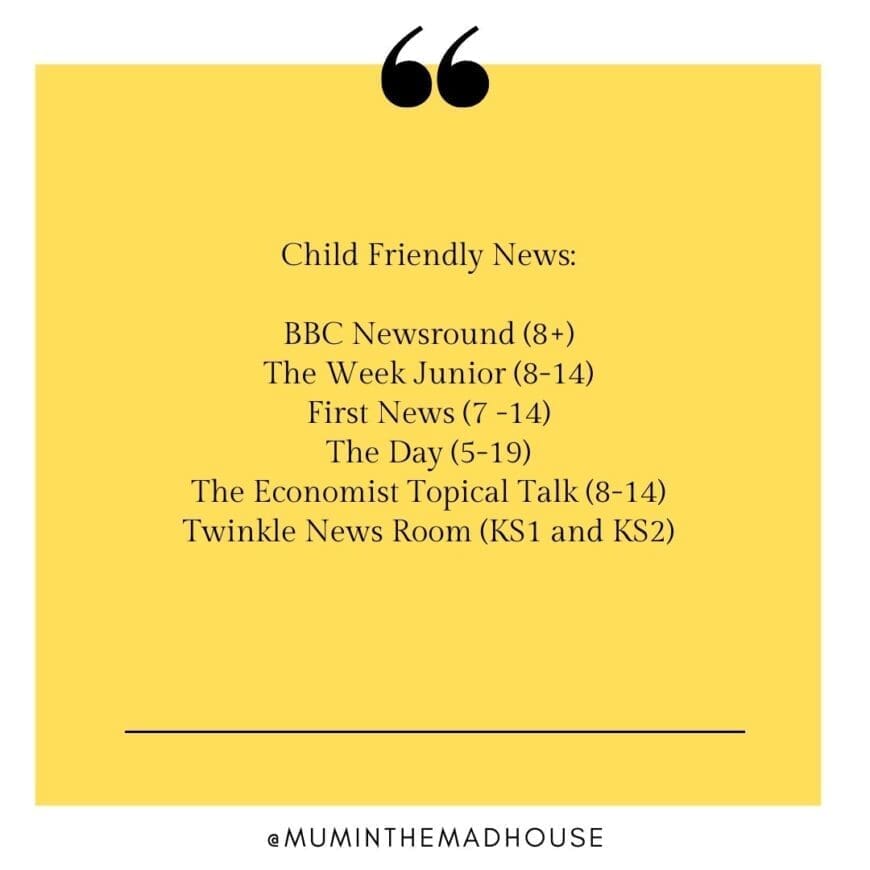
I hope this gives you some practice al tips on how to talk to children about war and conflicts in a way that suits their age.
